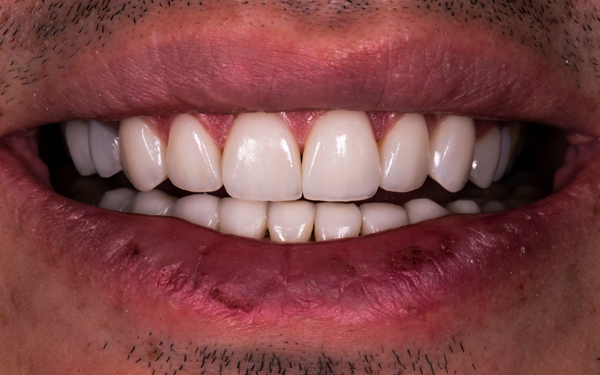Gum Disease: 5 Things You Need to Know

Despite the prevalence of gum disease, not every patient is aware of the risks and implications of this condition. By acquiring enough information about this ailment, you will be able to take the appropriate measures to curb and prevent its occurrence.
In this article, you will learn about the important facts everyone needs to know about gum disease.
5 Important facts about gum disease
1. Gum disease is quite rampant
Gum disease, otherwise known as periodontal disease, has been described by many health experts as the “silent ailment" because its symptoms are not usually apparent until the disease has advanced. According to statistics from the Centers for Disease Control, up to 47 percent of adults age 30 and above have some type of gum disease. Cross over to 65 years of age, and the percentage of adults with gum disease increases to 70.
The condition is more prevalent in men than women, with a little over 56 percent of all instances. Due to the prevalence of this oral health condition, it is necessary to know the effects, symptoms, and ways to prevent the disease.
2. Gum disease can have adverse effects on your overall health
Although the impact of gum disease on oral health is visible, it also has its repercussions on your general well-being. Multiple studies have linked gum disease to a higher risk of heart disease, respiratory illness, diabetes, stroke and complications during pregnancy. According to the American Association of Periodontology, the repercussions of this disease on the health may be due to the associated inflammation.
3. It comes with some warning signs
Although gum disease can go undetected for a while, you can watch out for certain signs and symptoms, including bleeding gums, inflamed gums, receding gum line, halitosis (bad breath), tooth sensitivity, loose teeth, painful chewing and changes in tooth alignment. If you have a dental restoration such as dentures, you may start noticing them fitting more loosely.
4. Gum disease is aggravated by certain factors
To prevent periodontal diseases, you need to be aware of your risk level for the illness. The following factors can place you at a higher risk of compromising your gum health:
- Smoking or using tobacco products
- A family history of gum diseases
- Aged 65 and above
- Chronic stress
- Teeth grinding (bruxism)
- Medications for certain conditions (antidepressants, heart meds, some oral contraceptives)
- Chronic illnesses such as cardiovascular disease, diabetes and rheumatoid arthritis
- Consuming a low-nutrient diet
Although these factors play a part, it does not mean that you will develop gum diseases. Fortunately, you can prevent its occurrence by taking specific precautions.
5. Gum disease is preventable
Despite the prevalence of the condition, it can be prevented. The most important step of all is maintaining an excellent oral care routine. This means brushing your teeth at least twice daily, flossing and visiting the dental office for regular checkups. You could also make some lifestyle changes like quitting smoking. Vitamins C and D and calcium have been known to strengthen the teeth and gums against periodontitis.
Final note
A regular dental checkup is the most effective way to ensure the early detection, treatment and prevention of gum disease. If you start noticing any of the above symptoms, make sure to contact your dental office immediately.
Request an appointment here: https://www.queensfamilydental.com or call Queens Family Dental at (718) 954-9425 for an appointment in our Flushing office.
Check out what others are saying about our services on Yelp: Read our Yelp reviews.
Recent Posts
Full mouth reconstruction involves replacing and repairing damaged or missing teeth. A treatment plan includes a variety of different treatments, and one common procedure is known as dental bridge treatment. This review takes a closer look at how general dentists use dental bridges to replace teeth during full mouth reconstruction. Most patients have several available treatment…
Severe tooth decay or damage is often treatable through root canal therapy. Despite its reputation, undergoing a root canal is similar to filling a cavity and is generally no more uncomfortable. Learning about the procedure and the recovery process can help alleviate concerns, helping patients see the benefits of preserving their smile with a root…
Periodontics, the branch of dentistry focused on the health of the gums and supporting structures of the teeth, plays a vital role in preserving your smile. By addressing gum disease, maintaining healthy gums, and protecting the foundation of your teeth, periodontics allows general dentists to prevent and treat conditions that can lead to tooth loss…
Orthodontics has long played a critical role in people’s oral health and appearance. If you are not happy about your smile, chances are good that you will seek an orthodontist’s help. Orthodontists can use traditional metal braces or clear aligners to straighten teeth. These processes require several steps, including preliminary procedures to get the patient…


